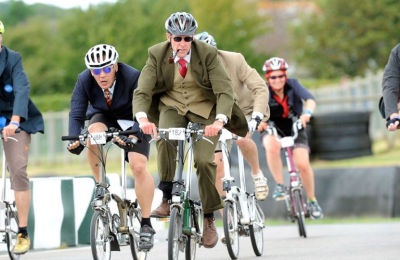To launch their new Cornish spiced rum in London, Dead Man’s Fingers has created ‘SkullCuts,’ a unisex barbershop specialising only in ‘close to the bone’ styles and scalp treatments. Contrary to traditional barbers, who focus solely on hair, SkullCuts is designed to give both men and women the confidence to show off more of their craniums. The concept, created by global brand experience agency Sense, aims to implant the brand’s skull iconography into culturally relevant spaces where the target consumers might be.
The SkullCuts barbershop pop-up hit the streets of Shoreditch on Tuesday 21st to Thursday 23rd August. All treatments are free of charge and come with a complimentary Dead Man’s Fingers spiced rum cocktail. Any guests who embraced the full SkullCut will be rewarded with a free bottle of Dead Man’s Fingers spiced rum and a limited edition ‘cut-to the cranium’ t-shirt.
According to Sense Creative Director Adam Curry: “Barbershops have enjoyed something of a mini renaissance lately for both sexes, now being known as much for their relaxed atmospheres and slick hospitality as they are for their cuts, so we felt that this would be the perfect environment to amplify the different sides of the Dead Man’s Fingers brand.”
Commenting on the campaign, Lucy Cottrell, Brand Manager for Dead Man’s Fingers, said: “Dead Man’s Fingers has grown a cult following in the South West since its launch in 2015, receiving lots of acclaim in a relatively short space of time, so it’s exciting to finally share its exceptional qualities with the rest of the country. The aim of the unique SkullCuts campaign is to spread the brand through the cultural consciousness of London and beyond, buoyed by the growing popularity of the spirit, with the skull imagery acting as the foundation for a new iconic UK liquor brand. Consumers will experience an original, exciting spiced rum brand that finally breaks away from some of the pirate and palm tree category stereotypes.”
























